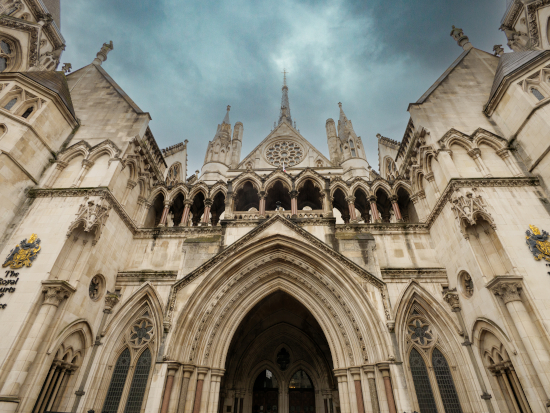Local campaigners have won a High Court challenge against Lambeth Council over the introduction of a low traffic neighbourhood (LTN) in the borough.
The West Dulwich Action Group (WDAG) won its challenge on the grounds that the council’s consultation on its Experimental Traffic Orders (ETOs) was 'unfair and/or that the Council had regard to immaterial considerations when deciding to make the Orders'. It was defeated on two other grounds.
Judge Tim Smith has given both sides the opportunity to make 'further submissions' on what should happen with the unlawful Experimental Traffic Orders for the LTN.
WDAG, which represents over 1,000 local residents and businesses in the West Dulwich area, called on Lambeth Council to 'engage collaboratively and constructively with the West Dulwich community, with clear objectives, transparent communication and a genuine willingness to listen'.
'We stand ready to play our role in finding a better solution for the local area—one that actually reduces pollution and balances the needs of all,' the group said.
Cllr Rezina Chowdhury, deputy leader of Lambeth Council said: 'We implemented the West Dulwich Street Improvements to reduce road danger and create a neighbourhood where residents can live safer, happier and healthier lives.
'The court has allowed the claim against the West Dulwich Street Improvements on one of the three grounds of challenge, and dismissed the other two. We acknowledge the court’s decision and are carefully considering the implications of this judgement; we will provide further updates in due course. The current trial scheme in West Dulwich will remain in place in the meantime, while we await further directions from the court.
'We remain fully committed to working with local communities to transform streets across the borough and getting on with our programme to deliver benefits for everyone.'
The case appeared to turn on the council's consideration of a 53-page presentation submitted by WDAG to the council.
On 6 August 2024, the London Borough of Lambeth approved two ETOs pursuant to the Road Traffic Regulation Act 1984.
The combined effect of the Orders was to prevent vehicular traffic from entering, passing through or waiting within the part of Dulwich bounded by Croxted Road to the east and Norwood Road to the west.
The orders' 'experimental' period allows for the actual effects to be judged and operates as an extended period of further consultation before any decision is reached on whether or not to make the Orders permanent.
A statutory consultation on the proposed Experimental Traffic Orders began on 30 May 2024 and ended on 20 June.
During the statutory consultation, an online meeting took place between the claimant and the council on 3 June 2024.
The claimant delivered a detailed 53-page presentation document outlining the concerns. Council officers agreed to pass the presentation on to the relevant officers, to answer its questions, and to hold a follow-up meeting.
Judge Tim Smith said: 'The 53-page presentation is impressive. The material it contained was, in my judgement, highly relevant to the decision confronting officers.'
'On the evidence I am forced to conclude that, despite assurances to the contrary given to the Claimant, the 53-page presentation did not form part of the Council’s considerations in its decision to make the Orders. It should have done. Its content was highly relevant to the issues being deliberated upon and thus it was a material consideration. The failure to have regard to it was a serious failing, rendering the decision to make the Orders unlawful in the Wednesbury sense.'
The judge referred to a council letter that stated: 'The issues raised have been fully considered as part of the decision making process and it is noted that the six month ETO statutory objection period will provide an opportunity to make representations on the trial scheme.'
He found that the statement, 'whilst factually correct, betrays an apparent flaw in the Council’s approach to its decision-making'.
This was 'namely that the integrity of the consultation on the Street Improvement Scheme at the stage of experimental traffic orders is less important because it will be followed by a longer period of statutory consultation after they have come into effect'.
Judge Smith said that 'cannot be an answer to complaints about the adequacy of the consultation undertaken before the experimental orders were made'.






